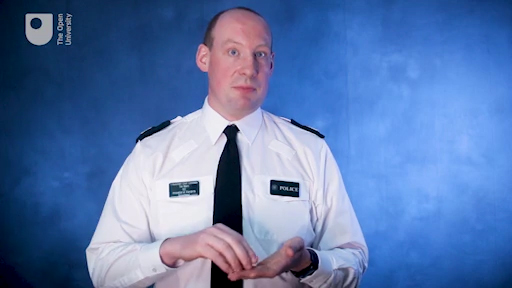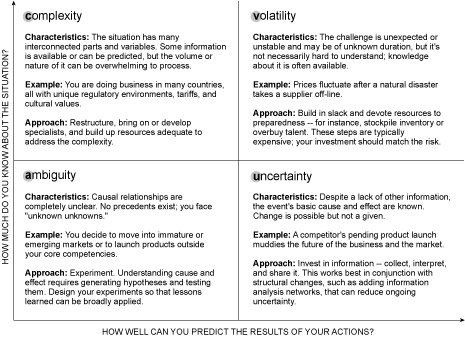9 Leading through change
No man is an Island, entire of itself; every man is a piece of the Continent, a part of the main.
Change is a seeming constant these days. Whether it is a political change, social change or organisational change, the world appears to be becoming more and more dynamic. The fixed points that we felt we could rely on are no more, and there is constant pressure on organisations and individuals to change, improve and adapt.
Activity 10 What is changing in your world?
Think about and note down some of the things that are changing in your world. These could relate to any of the following areas:
- personal
- work
- national.
What is the impact that each of these is having on you and your role as a leader?
Discussion
In many ways change is a constant and something that might seem to be out of our immediate control. Taking a moment to step back and understand both what is changing and the impact of these changes can help us to more effectively grapple with the challenges that emerge. This is most especially so if we are able to take back a sense of control and even pre-empt or ‘get ahead’ of the changes that might be coming our way in the future.
When considering change at all levels, the role of leadership cannot be ignored. Comparative research for CEPOL, the EU Agency for Law Enforcement Training, found that successful change processes in policing have several factors in common (Christe-Zeyse, 2013):
- They are usually originated from within the police
- The need for the change can be expressed in police terms
- Good leadership is critical.
Whatever changes you and your organisation experience, the chances are that they will lead to a degree of volatility, uncertainty, complexity and ambiguity, or VUCA – a term which has become increasingly popular as a way of describing the changes organisations have experienced. VUCA looks at those changes in terms of how much might be known about a situation (ranging from not very much to quite a bit) and how predictable the results are from actions you might take (ranging from completely unpredictable to highly predictable).
The VUCA diagram below has been completed from the perspective of a retailer experiencing change. It outlines characteristics and examples of each of the four elements of VUCA – volatility, uncertainty, complexity and ambiguity – as well as potential approaches to coping with those changes.
Activity 11 How might VUCA events impact on you?
As you reflect on the VUCA model consider the characteristics, example and approach in each quadrant. Can you envisage how these kinds of event might impact on you, your role or your organisation overall? You might wish to capture your thoughts in the box below.
Discussion
Considering the volatility, uncertainty, complexity and ambiguity inherent in the external environment can help you to pre-empt future challenges and also future opportunities.
An awareness of the relative degrees of volatility, uncertainty, complexity and ambiguity in any one situation, and particularly changes in that situation, can help you to evaluate any steps you might need to take as a leader to better support yourself and your colleagues. To any extent, your approach to leading through change will also depend on the nature of the change taking place. Is the change emergent (i.e. ongoing and fluid or spontaneous in nature) or is it planned? Is it simply one of fine-tuning (i.e. incremental) or does it involve a significant transformation of how policing services are delivered?
At the same time, however, your approach to leading through change will depend on the people within the organisation. How people respond to change can very much depend on their prior experiences and whether they are perhaps feeling ‘change fatigue’, defined by Stensaker et al. (2002, p. 298) as ‘the individual’s response of becoming disorientated or dysfunctional as a result of too much stimulation’ – or, in other words, feeling overwhelmed, exhausted and demoralised as a consequence of an ever-changing context and a perceived lack of control.
Ultimately, organisational change rarely goes according to plan. Given that you can never fully isolate the effects of uncertainty and change (Dawson, 1996), the leader’s role is today more critical than ever.
Activity 12 Your role as a leader in change
In the following video, Temporary Assistant Chief Constable (T/ACC) Tim Mairs of the Police Service of Northern Ireland talks about the challenges of leading change.
As you are watching, reflect on your own experience of change – whether as someone leading change, someone who has been a member of a team or organisation which has undergone change or perhaps as a service user who has had to adjust to a changing context.
Make some notes about how effectively you feel the change was managed and how it might have been managed differently.

Transcript: Video 3 Temporary Assistant Chief Constable Tim Mairs discusses the challenges of leading change
Discussion
As T/ACC Mairs highlights, leading change can be both challenging and difficult. Nonetheless, there are times when we all need to adjust to a changing context and it is in these situations that leadership skills are required. For leaders, the challenge is two-fold: first, leaders must be able to recognise and themselves work with a changing context; second, leaders must be able to draw upon a repertoire of leadership skills and employ them appropriately depending on the needs of the situation and their team. Yet, more than just a challenge, this is an opportunity for individuals at all levels to really step up to leadership.

